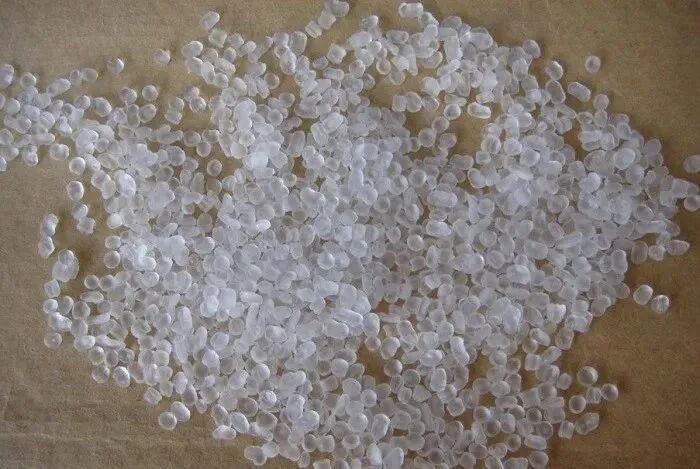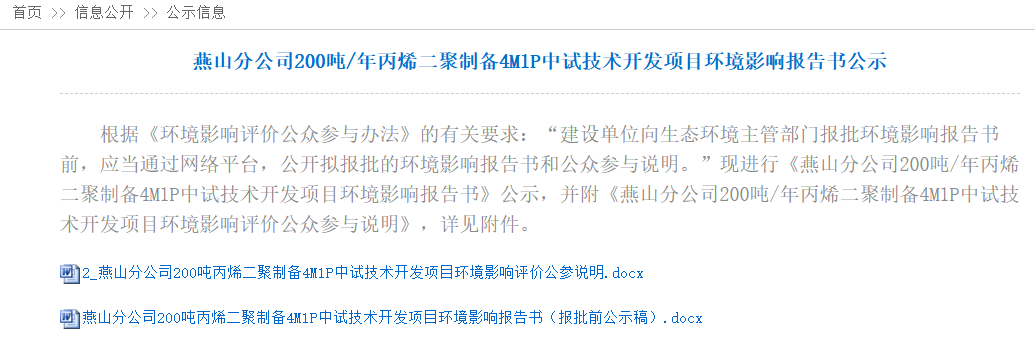"Lightest Plastic" PMP Monomer Domestic Production Imminent, Sinopec Yanshan Branch Pilot Plant Draws Attention
PMP (poly-4-methylpentene-1) is a highly crystalline transparent polyolefin, produced by polymerizing the monomer 4MP1 (4-methyl-1-pentene) derived from the dimerization of propylene. With a density of 833 kg/m³, it is the lightest among all plastics. In addition to the basic characteristics of general polyolefins, PMP exhibits excellent comprehensive performance, including superior optical transparency, good mechanical strength, outstanding high-temperature resistance, and stable electrical insulation properties. Notably, PMP, as a high-performance film material, possesses an extremely high oxygen permeability rate, more than 10 times that of polypropylene. This characteristic makes it valuable for important applications in high-end fields such as medical packaging and electronic devices.
PMP has a relatively low surface hardness, but its optical properties are excellent, with a light transmittance of up to 90%, which is between that of acrylic and polystyrene. Notably, this light transmittance is extremely stable and is essentially unaffected by processing conditions and product thickness. This characteristic makes it an ideal material for manufacturing high-precision transparent products.
In terms of mechanical properties, PMP exhibits outstanding rigidity: when the temperature exceeds 100°C, its rigidity surpasses that of polypropylene; when it exceeds 150°C, it even outperforms polycarbonate (PC). Additionally, the material possesses excellent electrical insulation and chemical stability, being resistant to acids, alkalis, chemical corrosion, and organic solvents. It also has significant stress crack resistance, preventing the stress cracking issues that other transparent materials commonly face when exposed to detergents.
The heat resistance and sterilization performance of PMP are equally outstanding. It can withstand high-temperature steam sterilization at 130℃ for up to 400 cycles without fogging, and it can tolerate hot air sterilization at 160℃ for 1 hour (cumulative 50 times). It is even suitable for various harsh sterilization conditions exceeding 200℃, as well as ethylene oxide and radiation.

PMP monomer—4M1P is an important high-end chemical raw material, playing a crucial role especially in the high-end medical field. It is a key material for the core component of the "artificial lung" in extracorporeal membrane oxygenation (ECMO) systems.
At the same time, 4M1P is an excellent comonomer in terms of performance and is often copolymerized with ethylene, propylene, etc., to significantly improve the overall performance of corresponding polyolefin materials. It is particularly effective in enhancing product transparency, environmental stress resistance, and crack resistance. Especially, the linear low-density polyethylene (LLDPE) prepared by copolymerizing 4M1P with ethylene has become a new type of polymer material that has attracted much attention due to its excellent properties.
It is reported that the 4M1P process technology is relatively mature abroad, with patent technology mainly monopolized by international giants such as Japan's Mitsui Chemicals and the United States' Phillips Petroleum. Most domestic related patent technologies are focused on the applications of downstream products of poly(4-methyl-1-pentene), and there is still a significant gap in foundational patents for key upstream processes such as monomer synthesis and polymerization. Against this backdrop, China Petroleum & Chemical Corporation's Beijing Yanshan Branch plans to build a 200-ton/year pilot plant for the dimerization of propylene to produce 4-methyl-1-pentene in the chemical plant area of the Yanshan Branch.

The project was announced for environmental assessment on the official website of Sinopec Yanshan Petrochemical Company in December 2024; on January 24, 2025, the first bidding section was initiated, covering the main pilot plant and related supporting projects; after the bid opening on February 25, Beijing Yanhua Engineering Construction Co., Ltd. was announced as the first successful candidate on February 26; the bid was officially confirmed on March 15.
If the device is successfully put into production, it will break the foreign monopoly of 4M1P and fill the domestic gap. The project was originally scheduled to start in February 2025 with a construction period of 5 months, aiming for trial operation in June. As of now, there are no new official updates on the project, and the specific production date will be subject to subsequent official announcements.
【Copyright and Disclaimer】The above information is collected and organized by PlastMatch. The copyright belongs to the original author. This article is reprinted for the purpose of providing more information, and it does not imply that PlastMatch endorses the views expressed in the article or guarantees its accuracy. If there are any errors in the source attribution or if your legitimate rights have been infringed, please contact us, and we will promptly correct or remove the content. If other media, websites, or individuals use the aforementioned content, they must clearly indicate the original source and origin of the work and assume legal responsibility on their own.
Most Popular
-

India's Q3 Smartphone Shipments Rise 3%; Japanese Mold Factory Closures Surge; Mercedes-Benz Cuts 4,000 Jobs
-

Ascend's Restructuring Plan Approved! Jwell Launches Global Acceleration Plan; Nexperia Chip Crisis Threatens Global Auto Production
-

Dow To Restart Pe Units 5 And 7 This Week, Recovery Date For Unit 6 Remains Undetermined In The United States (US)
-

Key Players: The 10 Most Critical Publicly Listed Companies in Solid-State Battery Raw Materials
-

The Roller-Coaster Behind Sanhua Intelligent Controls' Stock Price: What Are the Advantages of Automotive Thermal Management Companies Crossing Into Humanoid Robots?






